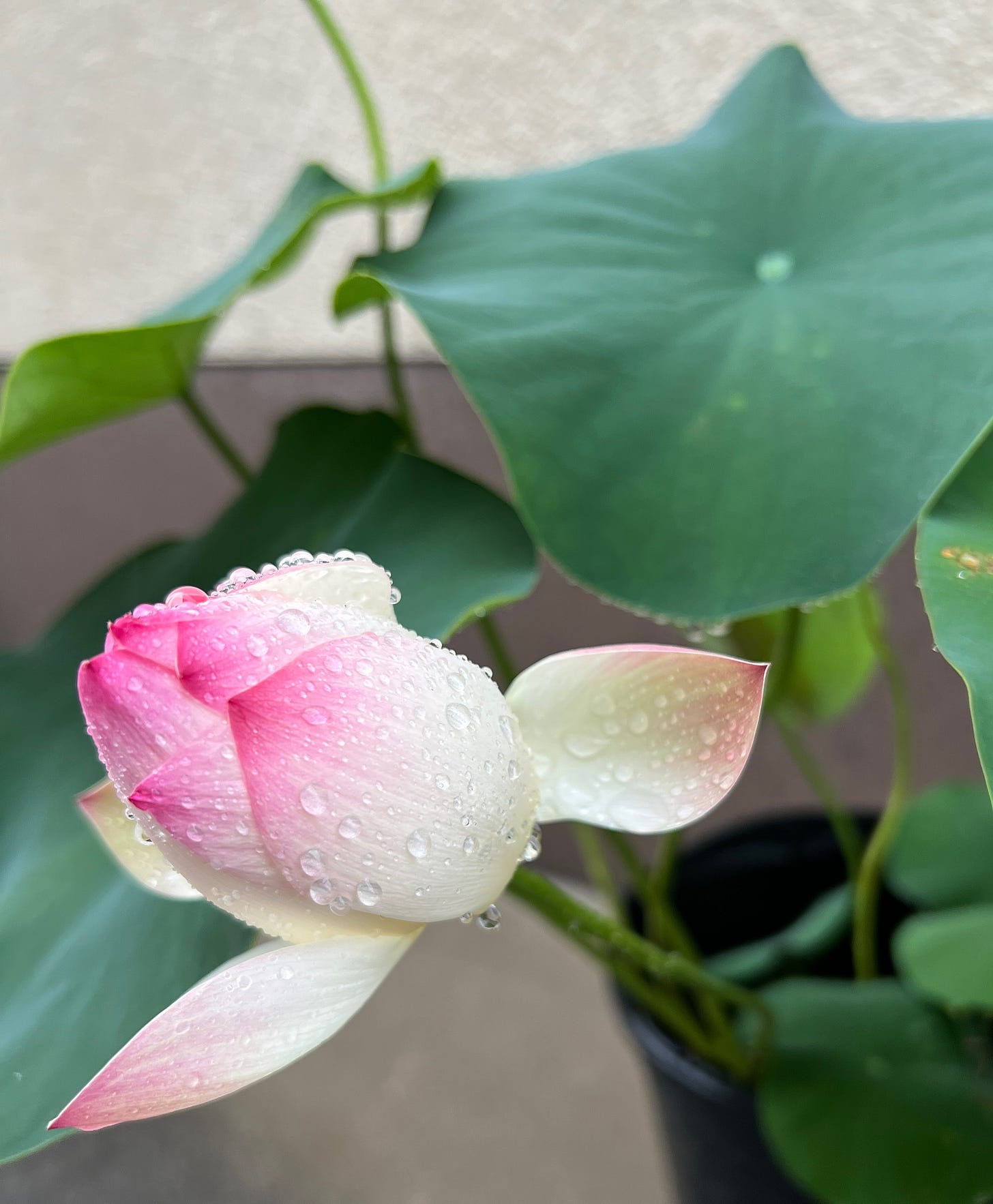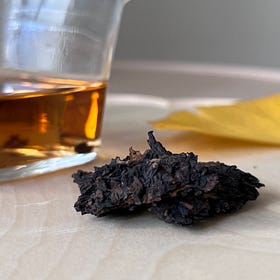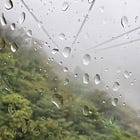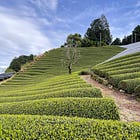"So even in despair, man must laugh”.
- Lin Yu Tang, Between Tears and Laughter (1943)72 Seasons of Tea | Instagram | LinkedIn | About
Harvard University is now banned from enrolling new international students, effective immediately. I had to read the headlines twice — unbelievable.
I was an international student in the U.S. for my last year of undergraduate and for my Master’s in Comparative International Development Education. And for awhile, I managed student exchange programs between North America and Singapore while working at the National University of Singapore’s International Relations Office. That was before my transition into international development work (which is also breaking down now).
This news hits close to home because I truly believe in the value of international education and cultural exchange.
All these unprecedented moves from the U.S. definitely do not Make America Great Again. But Make America Go Away.
It boils down to this: Fear.
Between Tears and Laughter (1943)
I first learned about Lin Yu Tang from
, Writer of Taoism Reimagined.Lately, I started to read Lin Yu Tang’s 1943 book Between Tears and Laughter, written at the height of the World War II.
Harvard-educated, Lin Yu Tang earned his Master’s degree in Comparative Literature there. He bridged the East and the West as a Chinese writer and philosopher who mastered English, introducing Chinese culture with Western readers while also embracing Western literary styles and ideas.
He believed that peace requires reevaluating our thinking to overcome cultural misunderstanding and ignorance between the East and the West. Often, the media and political rhetoric from both sides flatten complexity and the nuances for real understanding.
“Man’s minds naturally concentrate on the more pressing problems of the age.” “Yet the matter goes deeper than that. It reaches down to the roots and fiber of our thinking and has something to do with the temper of the age.”
“With our way of thinking, we cannot create or devise a world peace.”
“The plain fact is, we are scared not only of moral judgments, but of all normal emotions. Our morality is getting a little synthetic and is served up to the public in dehydrated essences”.
“Reading history sometimes gives one a curious feeling in the pit of the stomach. For the similarities to the modern world are rather alarming.”
“History cannot be understood through the inconsequential issues of details that newspapers so busily discuss, after they have been censored. History can be understood only as seen in the minds of men who direct a nation’s policy.”
An Invincible Summer During Winter
My Country and My People (1935) by Lin Yutang. Click link for my earlier post on his other book - My Country and My People.
Lin Yu Tang believed that the tensions at his time was not just a political clash of nations, but a spiritual crisis of the soul.
“Before we can understand ourselves and this age, we must understand the roots of our present thinking, and see how we came to think in this curious twentieth-century way at all. Why have the standards changed? Why has our conception of man changed? Why has the meaning of life gone? Why, in particular, do we come to be the cynics, pessimists, and hard-boiled “realists” that we are even in the midst of a war for democracy? Materialists must fight to the end of eternity. Materialists cannot end war or create peace. They have not the brains for it. Why, then, are we materialists?”
“We have now reached the stage when explosions of power politics are global in scope. Playing with power politics today is playing with fire. Meanwhile, our moral development lags behind; our thinking is national and not global.”
Lin Yu Tang’s timeless advocacy for cultural humility and a human-first diplomacy challenges us to go beyond “win” or “lose” to ask: Are we living with understanding, or merely surviving on fear?
On our conception of peace, he wrote:
“The emergence of Asia simply means this: the end of the era of imperialism.” “How did nineteenth-century imperialism begin, and how did the white v. man go about conquering the world, and what made him think he was superior to the other peoples?”
“What surprises me most in western thought is the almost complete absence of a philosophy of peace, by which I mean of peace, not merely as a hope in some utopian future, but peace as a normal condition of living in the present, as applied to the home, the nation, and the world. For instance, the technique of peaceful living, of domestic peace, national peace, and world peace, is hardly ever developed. Western social thought is either economics or political science. To me it is less satisfying than eating a juicy apple.”
“Peace, we are told, is a highly technical matter, like the making of a synthetic rubber. It consists, we are told, of lowering tariff barriers, establishing international air routes and air bases, shipping and insurance credits and guarantee of capital investments abroad, easing of population pressures, raising the standard of living. Peace is just distributing ration coupons to the world.”
“It is this form of materialism that is driving me mad. The first step of wisdom is the realization of this folly — of the inadequacy of our conception of peace.”
Other notable quotes from his book:
"The Sage is one who has first discovered what is common in our hearts” — Mencius
“Nobody is ever misunderstood at a fireside; he may only be disagreed with. Agreement of opinions is the least important thing; disagreement is not only profitable, but necessary to thinking. At the fireside of a friend there is many a heated argument, after which both friends see many things not seen before.”
“When the mind is strong enough, it always transcends the personal circumstances. Sometimes, provided the mind has sufficient moral and intellectual strength, it turns futile rage and scorn into a comedy of sparkling tears and laughter.”
“Sometimes there are more tears than laughter, and sometimes there is more laughter than tears, and sometimes you feel so choked you can neither weep nor laugh. For tears and laughter there will always be so long as there is human life. When our tear wells have run dry and the voice of laughter is silenced, the world will be truly dead.”
“The Chinese Taoists knew this well; the whole yin-yang concept was based upon the wave theory. So also rise and decline in waves the generations of the thoughts of men. All life is like the ocean waves on a seashore to one who observes them closely; they recede while appearing to proceed and the water goes up when the crest begins to fall.”
“Fear, I am told, is one of the greatest driving powers of mankind.”
- Lin Yu Tang, Between Tears and Laughter (1943)Understanding Japan
Here in Kyoto, as I become increasingly drawn to Eastern culture and philosophy, I was reminded by
, Writer of Shitsurae Japan to go beyond the surface to deeply understand its complexity and nuances:“Due to the prevailing strong perception that “Kyoto equals Japanese culture,” many people today tend to focus exclusively on Kyoto, which makes it harder to see its broader cultural background.”
“However, examining history calmly, Kyoto’s cultural formation was actually one of the latest developments in the Kansai region. Geographically speaking, it would be more accurate to say that Kyoto’s culture is essentially a remix of influences from Nara, Osaka, and even the Japan Sea regions such as Shiga and Fukui.”
“This multifaceted blending was originally Kyoto’s cultural strength, but we must also remember that Kyoto’s unique culture evolved through repeated cycles of destruction and reconstruction. A critical turning point came during World War II when Kyoto was spared from wartime destruction, causing it to lose an opportunity for cultural renewal. As a result, today’s Kyoto residents seem to have forgotten this dynamic cultural advantage, instead fixating solely on the notion that their culture has lasted for over a thousand years.”
In crisis comes opportunity
Here is an opportunity for us to see more clearly - beyond our simplistic, binary worldviews - into the layered complexity and nuanced truths of human nature and culture.
Genuine understanding requires empathy, historical depth awareness, and cultural humility. It asks us to stretch our time horizon, looking not only at the present, but also into the past and toward the future — not just with fear, but with curiosity and imagination.
As Lin Yu Tang wrote in 1943 — a sentiment that remains timeless: “The only important question of today is: what are we, and what is man?”









I am such a fa of LinYutang, I must read "Between Tears and Laughter." His biographies of SuDongpo and Confucius are indispensable to me.
It would be a surprise if we don't see surprises from the White House these days...
To start a war, to destroy, and to smash things is actually easy, but trying to manage peace through mutual adjustment of policies is a whole other level of skill. Lin must be well aware of the Chinese perspective on war philosophy, which is essentially about defense and stability, rather than aggression and attack. No nation can be a permanent winner. The numerous internal and external wars that destroyed the ancient dynasties are just too many.
Reading the reflections on Kyoto and its cultural role for Japan makes me think of Xi'an, or Chang'an, a more accurate name for its historical importance. Perhaps a major difference between the two is that Xi'an was indeed, for more than 1100 years, the capital city for various dynasties and the heartland of ancient Chinese culture. It lost its central role after the collapse of the Tang dynasty. I can say that many locals are still proud of the city's historic glory, but I think it's more important to recognize that it has lost its relevance on many fronts in today's world, particularly in light of new circumstances.